Claystone and First Nations Relationship
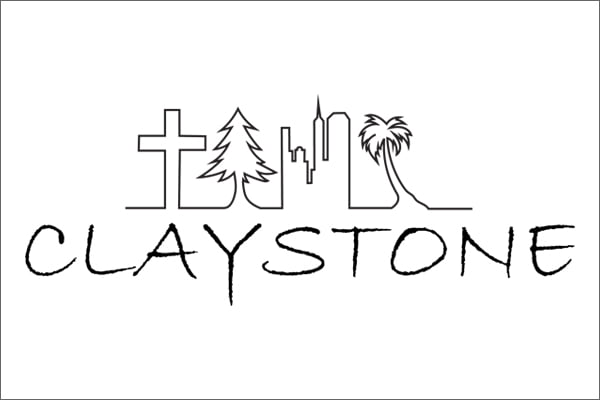 Rev. Dr. Danny Zacharias recently sent us this interview between himself, Rev. Michael Fredericks, Rev. Dale Stairs & Dr. Jon Olhauser. They talked about Perth-Andover Baptist’s connection with the Tobique First Nation, Crandall U’s Claystone Program and where the two have intersected. Bios of each participant can be found at the end of the interview.
Rev. Dr. Danny Zacharias recently sent us this interview between himself, Rev. Michael Fredericks, Rev. Dale Stairs & Dr. Jon Olhauser. They talked about Perth-Andover Baptist’s connection with the Tobique First Nation, Crandall U’s Claystone Program and where the two have intersected. Bios of each participant can be found at the end of the interview.
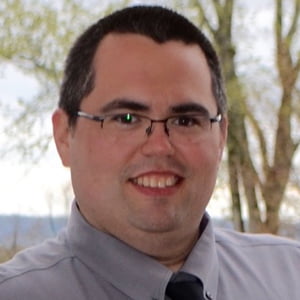 DZ: Mike, at Oasis 2016 we all heard about the ministry of Perth-Andover Baptist Church at Tobique First Nation. Can you catch us up on how things have progressed since that time?
DZ: Mike, at Oasis 2016 we all heard about the ministry of Perth-Andover Baptist Church at Tobique First Nation. Can you catch us up on how things have progressed since that time?
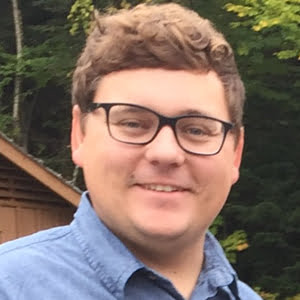 MF: Our approach to indigenous ministry is always evolving as we go along and learn more. As a church, we have stopped trying to lead and run ministry activities on the reserve even though they were well-received, and focus instead on investing in relationships, initiating reconciliation, and empowering the small but growing community of Maliseet believers to reach their own neighbours.
MF: Our approach to indigenous ministry is always evolving as we go along and learn more. As a church, we have stopped trying to lead and run ministry activities on the reserve even though they were well-received, and focus instead on investing in relationships, initiating reconciliation, and empowering the small but growing community of Maliseet believers to reach their own neighbours.
The Maliseet-led Thursday night Bible Study continues to meet at the Reserve Health Centre and has seen slow but continued growth. A couple people from our church and I regularly attend the Bible Study to be an encouragement and to serve however we’re asked. Our church’s relationship with the community in general has gotten stronger, and our Sunday morning services have good representation from Tobique First Nation.
 DZ: There are many pastors in our denomination reading this. Can you tell us all, what have been the joys and the challenges of this ministry in Tobique?
DZ: There are many pastors in our denomination reading this. Can you tell us all, what have been the joys and the challenges of this ministry in Tobique?
 MF: The greatest joy for me in ministry of any kind is always seeing Jesus transform lives. One particular story that illustrates that is a respected Elder from the reserve named Henrietta. I was encouraged by my Maliseet friend to pay her a visit. He and I went together to her home and we simply listened quietly as she shared about her life and her struggles. We offered to pray with her and shared some Scripture from the First Nations Version. She tells me that single visit was literally a life-saving encounter. She now loves and serves Jesus faithfully with deep peace, and our friendship has grown. She has blessed me with precious gifts of salmon, moose meat, moccasins for my baby, and an eagle feather which had belonged to her late son. The joys of First Nations ministry are many.
MF: The greatest joy for me in ministry of any kind is always seeing Jesus transform lives. One particular story that illustrates that is a respected Elder from the reserve named Henrietta. I was encouraged by my Maliseet friend to pay her a visit. He and I went together to her home and we simply listened quietly as she shared about her life and her struggles. We offered to pray with her and shared some Scripture from the First Nations Version. She tells me that single visit was literally a life-saving encounter. She now loves and serves Jesus faithfully with deep peace, and our friendship has grown. She has blessed me with precious gifts of salmon, moose meat, moccasins for my baby, and an eagle feather which had belonged to her late son. The joys of First Nations ministry are many.
The challenges of First Nations ministry are also many, from ongoing racism, to trust issues stemming from our colonial past, to contemporary issues such as alcoholism, crime, and housing shortages, to the resurgence of traditional spiritual practices and the complexities of the religious landscape. One of the biggest personal challenges is finding the time necessary to pour into this area of ministry. I am solo-pastoring a growing church with a large family and this kind of work demands relational investment.
 DZ: For pastors that feel this might be something for their church, how would you recommend they begin cultivating a relationship with a local first nation?
DZ: For pastors that feel this might be something for their church, how would you recommend they begin cultivating a relationship with a local first nation?
 MF: It’s as simple as getting to know your neighbours. If you happen to live nearby a First Nations community (and you probably do), take some first steps into the community. Attend on-reserve cultural events like powwows or Aboriginal Day festivities, be humble, shake hands, introduce yourself and ask questions. Listen, learn, and pray. You will likely discover that there are already small pockets of Christ-followers among the indigenous peoples, but they are longing for friendship and encouragement. Your church may also make some intentional efforts to respond to the Calls to Action for the Church in the TRC report. Begin thinking about what that might look like in your context.
MF: It’s as simple as getting to know your neighbours. If you happen to live nearby a First Nations community (and you probably do), take some first steps into the community. Attend on-reserve cultural events like powwows or Aboriginal Day festivities, be humble, shake hands, introduce yourself and ask questions. Listen, learn, and pray. You will likely discover that there are already small pockets of Christ-followers among the indigenous peoples, but they are longing for friendship and encouragement. Your church may also make some intentional efforts to respond to the Calls to Action for the Church in the TRC report. Begin thinking about what that might look like in your context.
 DZ: Recently, the Claystone program at Crandall came and partnered with Perth-Andover Baptist for a special time at Tobique. First, Dale can you tell us what ClayStone’s mission is and who it is for?
DZ: Recently, the Claystone program at Crandall came and partnered with Perth-Andover Baptist for a special time at Tobique. First, Dale can you tell us what ClayStone’s mission is and who it is for?
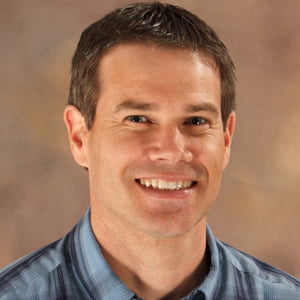 DS: Crandall’s ClayStone gap-year program is designed to provide students with a year of transformation: heart, mind, and body. Through a combination of outdoor adventure, cross-cultural and mission experiences and solid academics, ClayStone provides an opportunity for an intensive discipleship experience. It is designed for young adults who either specifically want a year of experiential education, or those who are searching for life direction and discipleship.
DS: Crandall’s ClayStone gap-year program is designed to provide students with a year of transformation: heart, mind, and body. Through a combination of outdoor adventure, cross-cultural and mission experiences and solid academics, ClayStone provides an opportunity for an intensive discipleship experience. It is designed for young adults who either specifically want a year of experiential education, or those who are searching for life direction and discipleship.
 DZ: Jon, would you give us the details of this learning experience for the Claystone students at Tobique.
DZ: Jon, would you give us the details of this learning experience for the Claystone students at Tobique.
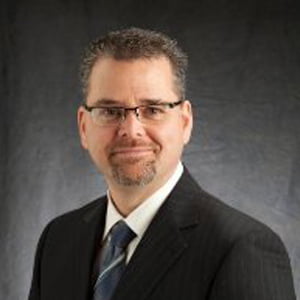 JO: We wanted our students to listen, learn and appreciate a neighbour whose culture was significantly different from their own. We were very clear in our intentions with Chief Perley — we wanted to come to listen and learn. To accomplish this, we were welcomed to enjoy a traditional meal with the elders, one that we helped prepare along with them. During that meal we had some elders share with us including a powerful story from a residential school survivor. We also were taken on a tour of some sacred territory and it was explained to us why it was sacred and how that area is still used for ceremonial purposes today. Finally, we participated in a blanket exercise that gave the students a very graphical description of the last 500 years of Maliseet history.
JO: We wanted our students to listen, learn and appreciate a neighbour whose culture was significantly different from their own. We were very clear in our intentions with Chief Perley — we wanted to come to listen and learn. To accomplish this, we were welcomed to enjoy a traditional meal with the elders, one that we helped prepare along with them. During that meal we had some elders share with us including a powerful story from a residential school survivor. We also were taken on a tour of some sacred territory and it was explained to us why it was sacred and how that area is still used for ceremonial purposes today. Finally, we participated in a blanket exercise that gave the students a very graphical description of the last 500 years of Maliseet history.
 DZ: Mike, what was your impression of this time of partnering and mentorship with ClayStone?
DZ: Mike, what was your impression of this time of partnering and mentorship with ClayStone?
 MF: I would say that the partnership with ClayStone created an opportunity for us to make major strides in our church’s relationship with the Tobique First Nation. Through the new friendships made at the traditional dinner / storytelling night, my apology, and the powerful Blanket Exercise, we have walked a little further up the long road of reconciliation. Essentially, ClayStone has helped us “join God in our neighbourhood,” and we are thankful for the opportunity to also pass on what we’re learning to the next generation of the church.
MF: I would say that the partnership with ClayStone created an opportunity for us to make major strides in our church’s relationship with the Tobique First Nation. Through the new friendships made at the traditional dinner / storytelling night, my apology, and the powerful Blanket Exercise, we have walked a little further up the long road of reconciliation. Essentially, ClayStone has helped us “join God in our neighbourhood,” and we are thankful for the opportunity to also pass on what we’re learning to the next generation of the church.
 DZ: When some pastors read this, they may wonder why you, the Baptist pastor at Perth-Andover, felt the need to apologize. Can you tell us a little more about the apology you made. Why was this important for you to do?
DZ: When some pastors read this, they may wonder why you, the Baptist pastor at Perth-Andover, felt the need to apologize. Can you tell us a little more about the apology you made. Why was this important for you to do?
 MF: Last year, I heard the apology given by Terry Smith on behalf of CBM and I was very impressed. His choice of words hit on many of the calls to action for churches issued by the TRC. While Canadian Baptists were not directly involved in Residential Schools, our silence in the midst of it makes us complicit. We essentially walked on the other side of the road when our neighbours lay bleeding. This is not the distant past, by the way. The last Indian Residential School in Canada closed in 1996. Some of these things happened in my lifetime. As Christians, we are commanded by Jesus to make reconciliation when we have wronged others (Matthew 5:23-24). Offering an apology for our failure to be a good neighbour is an important step toward reseting the relationship, and ultimately for the sake of the Gospel.
MF: Last year, I heard the apology given by Terry Smith on behalf of CBM and I was very impressed. His choice of words hit on many of the calls to action for churches issued by the TRC. While Canadian Baptists were not directly involved in Residential Schools, our silence in the midst of it makes us complicit. We essentially walked on the other side of the road when our neighbours lay bleeding. This is not the distant past, by the way. The last Indian Residential School in Canada closed in 1996. Some of these things happened in my lifetime. As Christians, we are commanded by Jesus to make reconciliation when we have wronged others (Matthew 5:23-24). Offering an apology for our failure to be a good neighbour is an important step toward reseting the relationship, and ultimately for the sake of the Gospel.
If the CBM apology is going to be effective, it needs to be heard by Canada’s First Nations people, and how more appropriately than for them to hear it on the ground from their Canadian Baptist neighbours. With Terry’s blessing, I adapted his apology for our local context.
 DZ: Jon, what have been the reactions of the ClayStone students to this experience?
DZ: Jon, what have been the reactions of the ClayStone students to this experience?
 JO: By and large, the strongest reactions from the students were from learning about the injustices experienced by indigenous people for the past few hundred years. Most students indicated that this was the best, most comprehensive explanation of the First Nation experience that they had heard.
JO: By and large, the strongest reactions from the students were from learning about the injustices experienced by indigenous people for the past few hundred years. Most students indicated that this was the best, most comprehensive explanation of the First Nation experience that they had heard.
 DZ: What was the biggest learning curve for the students?
DZ: What was the biggest learning curve for the students?
 JO: Students wrestled with overlaying their understanding of the Christian faith with that of the Indigenous tradition. From their perspective, there initially seems to be discomfort in the congruence. I told them that it is okay to feel some incongruence but to keep an open mind and spirit, and to listen well. There undoubtedly would come a point where the Christian faith and Indigenous tradition diverge but all too often we note that diverence way too early and the constructive dialogue stalls.
JO: Students wrestled with overlaying their understanding of the Christian faith with that of the Indigenous tradition. From their perspective, there initially seems to be discomfort in the congruence. I told them that it is okay to feel some incongruence but to keep an open mind and spirit, and to listen well. There undoubtedly would come a point where the Christian faith and Indigenous tradition diverge but all too often we note that diverence way too early and the constructive dialogue stalls.
 DZ: Dale, how do you hope this partnership develops in the future?
DZ: Dale, how do you hope this partnership develops in the future?
 DS: First, I would say that I am simply thrilled with the solid beginnings of this Tobique/Church/ClayStone partnership. I was able to attend the very moving traditional meal and storytelling event this year, and was so encouraged by the future potential for conversation and learning. As the incoming ClayStone Director, I want to join my future students in listening, learning, and developing strong relationships within the Tobique community. Our involvement relies on the relationships that Perth Andover Baptist has worked so hard to establish.
DS: First, I would say that I am simply thrilled with the solid beginnings of this Tobique/Church/ClayStone partnership. I was able to attend the very moving traditional meal and storytelling event this year, and was so encouraged by the future potential for conversation and learning. As the incoming ClayStone Director, I want to join my future students in listening, learning, and developing strong relationships within the Tobique community. Our involvement relies on the relationships that Perth Andover Baptist has worked so hard to establish.
 DZ: Finally Mike, I want to thank you for your work. You are a model for this type of ministry with the first people’s of Canada and I hope and pray that many more pastors will follow suit. How best can we pray for you and for the believers at Tobique?
DZ: Finally Mike, I want to thank you for your work. You are a model for this type of ministry with the first people’s of Canada and I hope and pray that many more pastors will follow suit. How best can we pray for you and for the believers at Tobique?
 MF: Thank you. God is good. Pray that I and my church will have wisdom to be both careful and courageous. Pray for the Bible Study to grow and the Maliseet Christian community to strengthen, especially that God would raise up more leaders among them. Pray that many more indigenous people all across Turtle Island would come to understand that the Creator is Jesus, and pray for the Church, filled with the Holy Spirit, to intelligently respond to the call of Christ to make disciples of all nations.
MF: Thank you. God is good. Pray that I and my church will have wisdom to be both careful and courageous. Pray for the Bible Study to grow and the Maliseet Christian community to strengthen, especially that God would raise up more leaders among them. Pray that many more indigenous people all across Turtle Island would come to understand that the Creator is Jesus, and pray for the Church, filled with the Holy Spirit, to intelligently respond to the call of Christ to make disciples of all nations.
 Rev. Dr. H. Daniel Zacharias is the Professor of New Testament Studies at Acadia Divinity College and is part of the faculty of NAIITS: an Indigenous Learning Community. Danny is also a part of the TRC working group for the CBAC.
Rev. Dr. H. Daniel Zacharias is the Professor of New Testament Studies at Acadia Divinity College and is part of the faculty of NAIITS: an Indigenous Learning Community. Danny is also a part of the TRC working group for the CBAC.
 Rev. Michael Fredericks is the pastor of Perth-Andover Baptist Church.
Rev. Michael Fredericks is the pastor of Perth-Andover Baptist Church.
 Rev. Dale Stairs (PhD cand.) is the Director of the Crandall-Acadia B.Th. Partnership & Director of Crandall Youth Leadership Certificate, and the incoming Director of the ClayStone program.
Rev. Dale Stairs (PhD cand.) is the Director of the Crandall-Acadia B.Th. Partnership & Director of Crandall Youth Leadership Certificate, and the incoming Director of the ClayStone program.
 Dr. Jon Ohlhauser is the Provost & VP for Academic Affairs, Interim Director of ClayStone, & Part-time Lecturer of Communication Studies at Crandall University.
Dr. Jon Ohlhauser is the Provost & VP for Academic Affairs, Interim Director of ClayStone, & Part-time Lecturer of Communication Studies at Crandall University.
